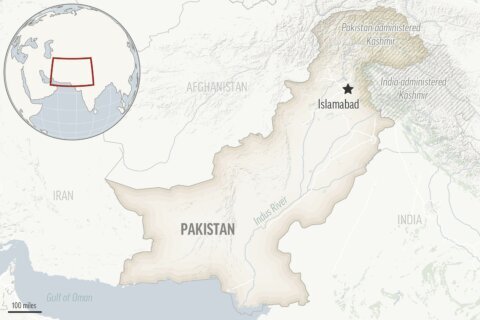For most MBA programs, about half of the credits required for students to earn the degree are electives, which can be used to drive a career path or add areas of expertise.
“Some students know what they want to do, so they kind of know what they want that career story to be and how they want that story to end,” says Peter Severa, assistant dean of student engagement for MBA programs at Georgia Institute of Technology’s Scheller College of Business.
Many MBA students start with their professional goals and work backwards to create a career path to achieve them, he says, and part of that is mapping out electives that will help them expand their knowledge of specific business topics.
Bradley Staats, senior associate dean for strategy and academics and a professor at the University of North Carolina’s Kenan-Flagler Business School, says an MBA program is a T-shaped education.
“What I mean by that is you get the breadth of the different business skills and capabilities you need, and then you are diving into industry concentrations, which really dictate what electives a student takes,” he says.
[How to Choose an MBA Concentration]
At Scheller, 33 of the required 54 total credits are dedicated to electives, which Severa says help build a students’ toolboxes so they become ready for the type of work they want to pursue.
Four of those courses have to be aligned with a certain concentration, such as marketing, sustainability, international business, leadership or something else.
“Electives can be useful in helping students find their passions and make decisions on what kind of impact they want their work to have after they graduate, both on their lives and on the world around them,” Severa says.
Sending Signals to Employers
Electives differentiate students and help them share their background and goals with potential employers, Severa says, while also helping students position themselves to be competitive in the job market.
“But overall, the benefit of electives is to expose students to more topics to help them find their path toward meaningful and rewarding work,” he says.
For example, someone interested in the negotiations of business should probably take electives focused on communications or leadership. Sustainability is becoming more popular, Staats says, and students pursuing that field of business might gravitate toward electives on health or the environment.
“But some things, like electives around design thinking and innovation, can be applied in almost any area of business,” he says.
[READ: MBA Promotion: How a B-School Degree Can Help You Advance.]
It’s beneficial to have a mix of electives focusing on technical skills and “soft skills” like leadership and management, which can be transferable across any job, Severa says.
Staats suggests that electives focus on two elements: function and industry.
“If I want to go into tech, and I want to do product marketing for a company, then I need to build out those product marketing skills while building knowledge on technology, and electives help achieve both of those things,” he says.
The 32 electives in North Carolina’s MBA program are divided into eight topic areas that tend to be common across MBA programs: communication, experiential learning opportunities, finance and accounting, entrepreneurship, marketing, operations, management and strategy, and technology and data. Examples of the school’s electives in those areas are Communicating with Data, Global Entrepreneurship Lab, Entrepreneurial Finance, Negotiations and People Analytics.
“Personalization, experiential, innovation are big themes that get talked about in business a lot, and electives are where so much of that happens and how those pieces get put together,” Staats says.
He says it’s important that universities draw elective ideas from their alumni who are engaged with cutting-edge research. It’s just as vital, he adds, that schools prepare courses around where the business industry is heading in the future to train students in jobs that may not exist yet.
“Schools are kind of assembling the pieces that will set students up for success when they enter the job market,” he says.
S Sriram, a marketing professor and associate dean for graduate programs at the University of Michigan’s Ross School of Business, says an MBA program is the last time many students are able to take higher education classes, so it’s good to take electives in different areas to become well-rounded.
“It’s like an all-you-can-eat-buffet — you don’t want to just load up on dessert because it’s your favorite, you also want to eat other things,” Sriram says.
[Typical MBA Courses That Applicants Should Know About]
For example, sometimes students say they want to go into consulting, so they take electives curated specifically for consulting. Still, he says, students typically take other courses so they can have a well-rounded experience before entering the workforce.
Sriram says some of the most popular electives at his school include courses on brand management, business leadership and “changing times.” Another popular course is “The Power of Prestige: How Status and Reputation Confer Competitive Advantage.”
Michael Montgomery, who taught business courses at Lawrence Technological University‘s College of Management in Michigan, says electives help students become experts in certain areas, which elevates their value to companies.
“Using their electives to gain an insight into multiple industries would be very, very, very helpful,” says Montgomery, who now owns and is principal consultant at Montgomery Consulting, Inc. in Detroit.
Sriram summarizes what he calls three main drivers for MBA students when picking electives. The first is electives that will help with an internship or job search, and the second is electives that will strengthen specific skills.
“The last driver is if there’s just a topic that is purely of interest to a student, and they would regret not having taken it in the program,” he says.
More from U.S. News
What an MBA Degree Is and What You Need to Know
How to Get an MBA in Less Time
7 Surprising Jobs for MBA Graduates
Advice on Choosing MBA Elective Courses originally appeared on usnews.com







